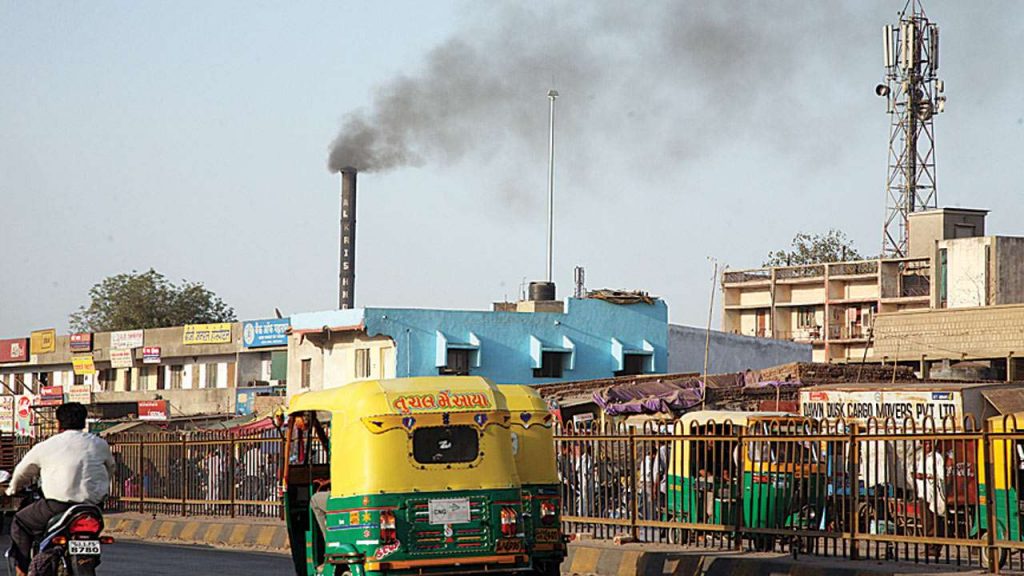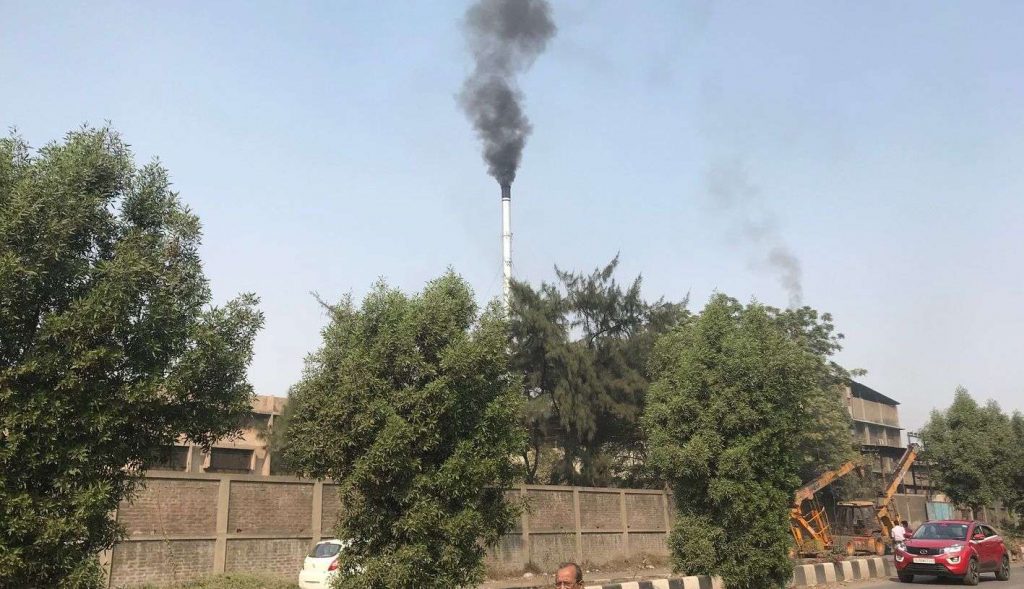On World Environment Day 2019, Gujrat’s Chief Minister Vijay Rupani launched India’s first trading Programme to combat air pollution. As this year’s world’s environment day theme was Air Pollution, it was an ideal day to launch the Programme which promises to fight against the rising pollution level.
The trading Programme is a market-based system and the government is going to put a stop on industrial emissions. This also means that the same industry will have to buy and sell under the emission cap regulated by the Gujrat Government.
India’s First Trading Programme To Combat Air Pollution
Looking at the speedy graph of rising pollution level, the Gujarat Pollution Control Board initiated the emission trading scheme (ETS) in Surat. Team of researchers from the Energy Policy Institute at the University of Chicago (EPIC), The Abdul Latif Jameel Poverty Action Lab (J-PAL) and the Economic Growth Center at Yale University helped in designing the scheme.

The regulators first determine the total mass of pollution one can induce in the air over a period of time by the factories altogether. Then sets of permits are initiated and each of these sets allows a certain amount of pollution that is equal to the cap agreed under the cap and trade system.
After this, plants can trade permits with each other, just like any other commodity on the National Commodity and Derivatives Exchange Limited (NCDEX).
“The reason for trading is that in a cap and trade market, the regulator will measure pollution over a period of time and industries must own enough permits to cover their total emissions. Factories who find it very expensive to reduce pollution will seek to buy more permits. Those who can easily reduce pollution are encouraged to do so because then they have excess permits to sell,” said EPIC.
Gujarat Pollution Control Board chose Surat
Surat has a dense population of the industrial center – mostly textile and dye mills, which causes a significant amount of pollution. Gujarat Pollution Control Board (GPCB) chose Surat primarily due to this reason.

GPCB will be implementing across 350 industrial units in the city in a proper manner to combat air pollution. Around 160 units are in line during the first phase of installation.
“With this program, we are kicking off a new era of cleaner production, while lowering industry compliance costs and rewarding plants that cut pollution in low-cost ways,” said GPCB chairman, Rajiv Kumar Gupta.
For now, the government has set a cap on the concentration of emissions for each industrial unit at 150 microgrammes per cubic meter (ug/m3), which is the 24-hour average for emission standard set by the Central government for industrial units.
Globally, cap-and-trade systems have been used to reduce other forms of pollution, such as programs that have successfully reduced sulpfur dioxide (SO2) and nitrogen oxides (NOx) in the United States. But the Gujarat program is the first in the world to regulate particulate air pollution.
This post is also available in:
![]() Global
Global ![]() IND English
IND English ![]() UK English
UK English ![]() US English
US English